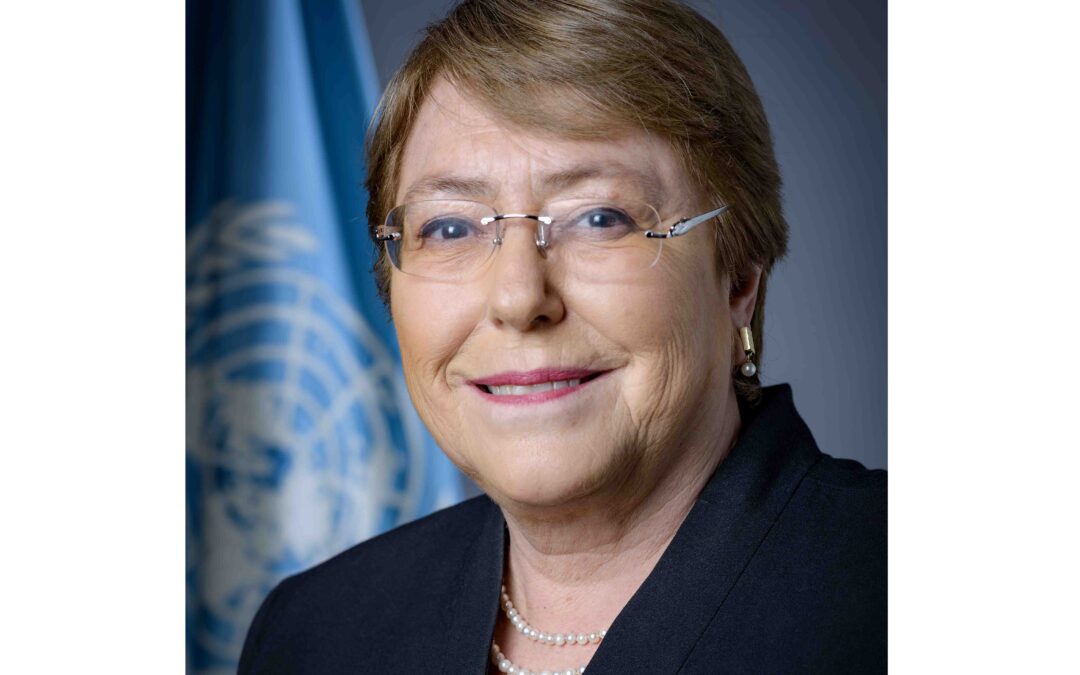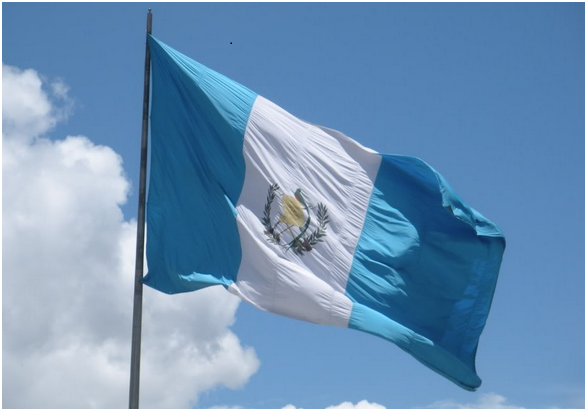
Dec 19, 2018 | News
According to information published in the Official Gazette, the government of Guatemala has ordered that eleven more officials and two family relatives from the CICIG leave the country within 72 hours from the time of issuing the notification. However, no official communication using the usual diplomatic channels has yet been sent to the CICIG.
In September 2018, the head of the CICIG, Commissioner Ivan Velasquez, was banned from re-entering the country and the government stated it would not renew the CICIG mandate after September 2019.
Ramon Cadena, the ICJ Director for Central America, stated: “The ICJ considers this new measure is designed to hinder criminal investigations against high-level government officials accused of corruption.”
The CICIG acts as a special prosecutor in serious corruption and other criminal cases and carries out investigations to identify responsible parties. The persons who have been asked to leave the country are the lawyers, police and prosecutors who are investigating important corruption cases, such as the ‘The Line’ case, in which the former President and Vice-President have been charged and other cases including those within the National Police.
Ramon Cadena continued: “It cannot escape anyone’s attention that one of the CICIG investigators who has been asked to leave the country was the person who is responsible for the corruption case involving the General Property Registry, that allegedly implicates both the son and brother of President Jimmy Morales”.
This new measure by the government seriously affects the rule of law and constitutes a flagrant violation of article 10 (4) of the agreement establishing the CICIG signed between Guatemala and the UN, which states:
“The Government agrees to provide to CICIG and its personnel the security necessary for the effective completion of CICIG’s activities throughout Guatemala, and to protect the personnel of CICIG, whether national or international, from abuse, threats, reprisals or acts of intimidations, in virtue of their status as personnel of, or their work for CICIG.”
Cadena added: “It is deeply regrettable that it is precisely the CICIG staff acting in high-impact cases who are being targeted by these measures because of their work to combat corruption and impunity. It is clear that the government is seeking to divert the CICIG from its path.”
Furthermore, according to the UN Basic Principles on the Role of Lawyers, No 16: “Governments shall ensure that lawyers: a) are able to perform all of their professional functions without intimidation, hindrance, harassment or improper interference… “ Cadena continued, “The ICJ is deeply concerned that several CICIG personnel affected by these measures are lawyers and members of the Guatemalan Bar Association. Their work is being hindered and the Guatemalan Bar Association should take action to defend its members.”
“Guatemala should comply with international human rights law and ensure that acts of corruption that impact human rights are fairly and impartially investigated and prosecuted. The presence of the CICIG contributes to ensuring that Guatemala complies with its international obligations” he added.
Cadena concluded by stating: “With these arbitrary measures, the Constitutional order of Guatemala and its democratic institutions are undermined. The Guatemalan State should ensure effective measures are taken against corruption, consistent with its international human rights and other obligations. The CICIG is one of the most successful examples of work to end corruption and impunity. The Guatemalan authorities should support the CICIG instead of hindering its work and obstructing justice.”
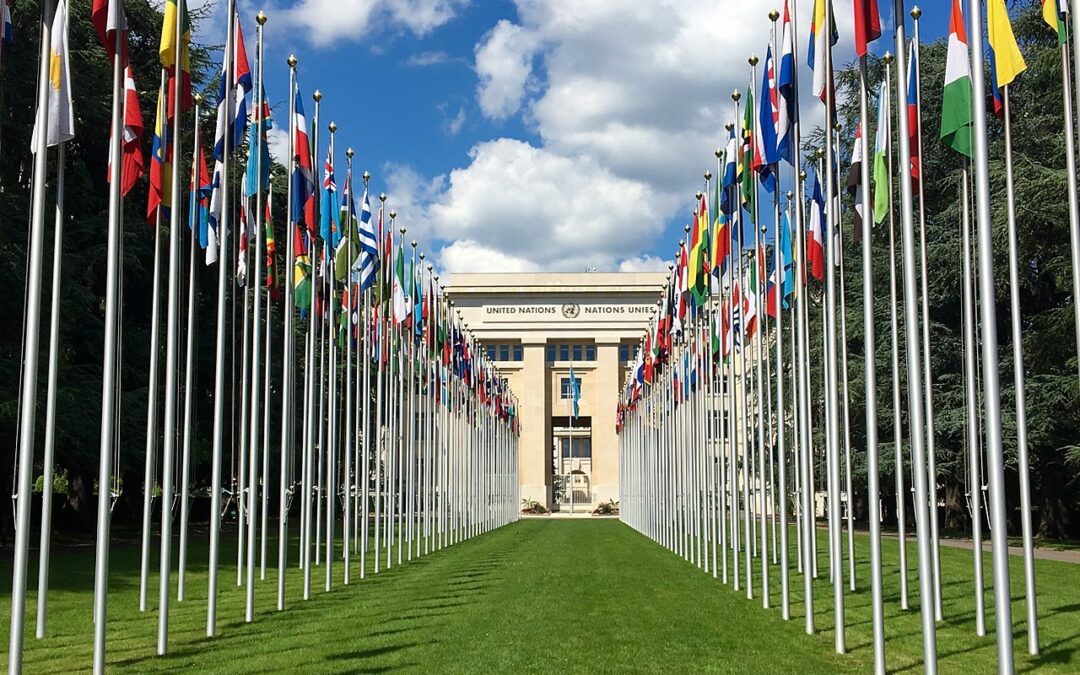
Sep 26, 2018 | Advocacy, Non-legal submissions
The ICJ today emphasised the continuing failure of domestic accountability mechanisms to ensure proper accountability for crimes under international law in Libya, speaking at the UN Human Rights Council in Geneva.
The statement, made during an Interactive Dialogue with the UN High Commissioner for Human Rights on her oral update on the situation in Libya, at the Human Rights Council in Geneva, read as follows:
“Mr President,
The International Commission of Jurists (ICJ) remains concerned by the scale and magnitude of the human rights violations that continue in Libya, and the failure of domestic accountability mechanisms to address them.
Impunity prevails for crimes under international law committed during and after the 2011 uprising, including extrajudicial killings, torture and other ill-treatment, and enforced disappearances. Broad amnesty laws allow those responsible to avoid prosecution.
Even in the rare cases where former officials of the Gadhafi regime have faced trial,[1] the integrity of the justice process has been compromised by failures to respect international fair trial standards, including the right to legal counsel and the right to call and examine witnesses.
On August 15, 2018, following an unfair mass trial, 99 defendants were convicted for the killing of 146 anti-Gaddafi protesters in Tripoli during the 2011 uprising.[2] 45 were sentenced to death, violating the right to life.
Such unfair trials and unlawful sentences not only violate the human rights of the accused: they deprive the victims of the crimes of the right to know the truth about the legacy of past violations and the legitimate and untainted justice to which they are entitled. New, fair trials are required.
Political and security instability in Libya undermines the ability of the judiciary to administer justice independently and impartially, including with a view to combating impunity. Judges and prosecutors are threatened, intimidated, abducted and in some instances killed, particularly when attempting to address crimes by members of armed groups.
The ICJ would like to ask the High Commissioner, how can other States and civil society help ensure that Libya, while fully cooperating with the International Criminal Court, implements an effective legal and practical framework to address crimes under international law and eradicate impunity?
Thank you.”
[1] Case 630/2012.
[2] https://www.hrw.org/news/2018/08/22/libya-45-sentenced-death-2011-killings.
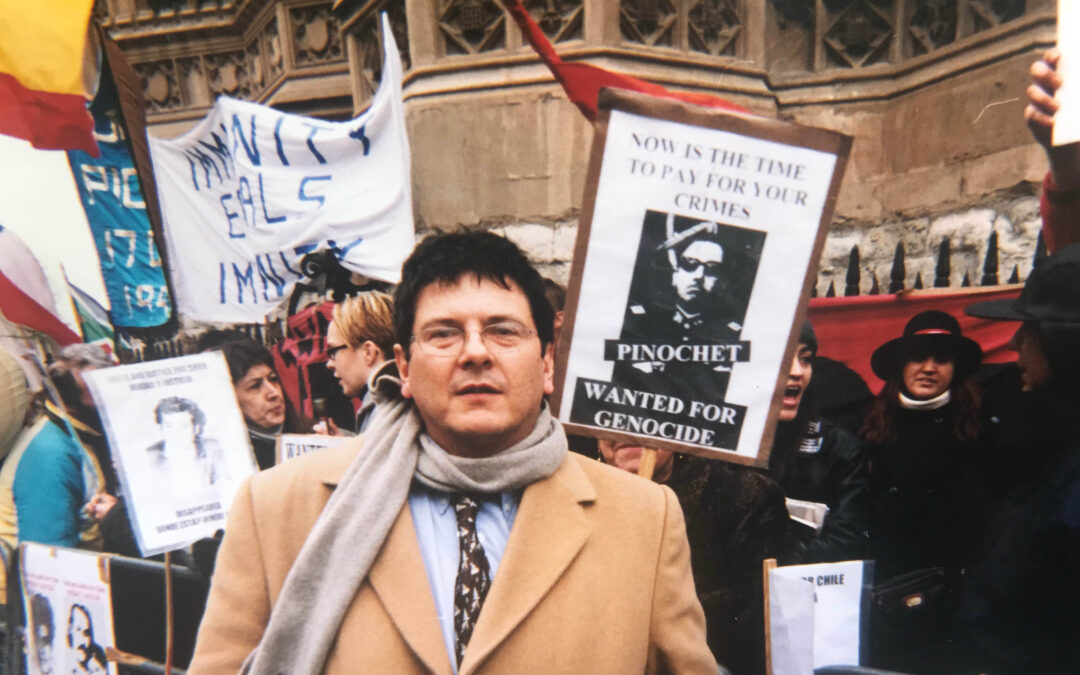
Sep 24, 2018 | Feature articles, News
On October 16, 1998, the former dictator of Chile Augusto Pinochet was arrested in London on a warrant from a Spanish judge. Reed Brody participated in the subsequent legal case.
Reed Brody went on to apply the “Pinochet precedent” in the landmark prosecution of the former dictator of Chad, Hissène Habré, who was convicted of crimes against humanity in Senegal in 2016.
He now works with victims of the former dictator of Gambia, Yahya Jammeh. The ICJ interviewed Brody about the Pinochet case and its legacy.
What was your role in the Pinochet case?
My role started when Pinochet was arrested in London. The case began long before that, of course, in the early years of Pinochet’s dictatorship when brave human rights activists documented each case of murder, and “disappearance.”
The ICJ worked with those advocates to produce a seminal 1974 report on those crimes, just six months after Pinochet’s coup. Shut out of Chile’s courts, even after the democratic transition of 1990, victims and their lawyers pursued a case against Pinochet in Spain under its “universal jurisdiction” law and when Pinochet traveled to London, Spanish Judge Baltasar Garzón requested and obtained his detention.
When Pinochet challenged his arrest in court claiming immunity as a former head of state, I went to London for Human Rights Watch, and we and Amnesty International were granted the right to intervene with teams of lawyers in the proceedings at the judicial committee of the House of Lords, then Britain’s highest court.
The Lords cited our research in rejecting Pinochet’s immunity.
You famously described the Lords’ Pinochet decision as a “wake-up call” to tyrants everywhere. Looking back, do you think it was?
Actually no, I think one would be hard pressed to discern a change in the behavior of dictators. Mugabe didn’t quake in his boots, Saddam didn’t clean up his act.
The more important and more lasting effect of the case was to give hope to other victims and activists. When the Lords ruled that Pinochet could be arrested anywhere in the world despite his status as a former head of state, the movement was in effervescence.
As a human rights lawyer, I was used to being legally and morally right, but still losing. In the Pinochet case, not only did we win, but we upheld the detention of one of the world’s most iconic dictators.
The Pinochet case inspired victims of abuse in country after country, particularly in Latin America, to challenge the transitional arrangements of the 1980s and 1990s, which allowed the perpetrators of atrocities to go unpunished and, often, to remain in power.
These temporary accommodations with the ancien régime didn’t extinguish the victims’ thirst to bring their former tormentors to justice.
How did you go from Pinochet to Habré?
With Pinochet, we saw that universal jurisdiction could be used as an instrument to bring to book people who seemed out of the reach of justice.
Together with groups like Amnesty, the FIDH, and the ICJ (which wrote an important report on the Pinochet case and its lessons), we had meetings on who could be the “next Pinochet.”
That’s when Delphine Djiraibe of the Chadian Association for Human Rights asked us to help Habre’s victims bring him to justice in his Senegalese exile.
I was excited at the prospect of persuading a country in the Global South, Senegal, to exercise universal jurisdiction, because there was a developing paradigm of European courts prosecuting defendants from formerly colonized countries.
It took us 17 years, but Habré became the first prosecution ever of a former head of state using universal jurisdiction, and indeed the first universal jurisdiction trial in Africa.
1998 was a high water mark for international justice with the adoption of the ICC Rome Statute and Pinochet’s arrest. Neither the ICC nor universal jurisdiction have quite lived up to their expectations. Why?
International justice doesn’t operate in a vacuum, it’s conditioned by the global power structure. Each case, whether at the ICC level or the transnational level, is a product of the political forces which must be mobilized, or fended off, to allow a prosecution to proceed.
Those forces, particularly since September 11, 2001, have been hostile to human rights enforcement in general and to justice in particular. Universal jurisdiction has been subject to the same double standards as the ICC.
The Belgian and Spanish universal jurisdiction laws, which were the broadest in the world, were both repealed when they were used to investigate superpower actions.
But many of the most successful cases have been those in which the victims and their activist supporters have been the driving forces, have compiled the evidence themselves, built an advocacy coalition which placed the victims and their stories at the center of the justice struggle and helped create the political will in the forum state.
I’m thinking not just of Habré, but the genocide prosecution in Guatemala of the former dictator Efraín Ríos Montt, the case in Haiti of “President for Life,” Jean-Claude “Baby Doc” Duvalier, the Liberian cases brought around the world by Civitas Maxima and its partners, the Swiss cases initiated by TRIAL International, and the Syria litigation by ECCHR and others.
These cases were brought before domestic courts either of the country in which the atrocities took place (Guatemala, Haiti) or of foreign countries based on universal jurisdiction, rather than before international courts.
Most of these cases took advantage of legal regimes which allowed victims directly to participate in the prosecutions as “parties civiles,” or “acusación particular” rather than play passive or secondary roles in cases prosecuted solely by state or international officials.
How do victim-driven prosecutions look different than institutional cases?
When it’s the victims and their allies who get the cases before a court, who gather the evidence, and who have formal standing as parties, the trials are more likely to live up to their expectations.
In the Rios Montt case, for instance, the Asociación Para la Justicia y Reconciliacion (AJR) and the Centro Para la Acción Legal en Derechos Humanos (CALDH) mobilized the victims, developed the evidence, defined the narrative and, essentially, determined the outlines of the case and chose the witnesses who would testify for the prosecution.
In the Habré case, we spent 13 years building the dossier, interviewing hundreds of victims and former officials and uncovering regime police files. The victims’ coalition always insisted that any trial include crimes committed against each of Chad’s victimized ethnic groups, and that is exactly was happened.
In contrast, a distant prosecutor, disconnected from national narratives and inherently not accountable to the victims or civil society, can be tempted to narrowly tailor prosecutions in the hopes of securing a conviction or avoiding political resistance.
This was the case with the ICC in the Democratic Republic of the Congo, for instance, where, as Pascal Kambale has persuasively argued, it betrayed the victims’ hopes.
Millions of civilians died in the DRC and Luis Moreno Ocampo only went after two local warlords. I think the current prosecutor is paying more attention to local realities.
The inspiration from victim-driven cases is also greater, and they are to some degree replicable. As Naomi Roht-Arriaza has written, these cases “stirred imaginations and opened possibilities precisely because they seemed decentralized, less controllable by state interests, more, if you will, acts of imagination.”
When I showed Chadian victims video clips of the Ríos Montt trial, they saw in those images exactly what they were trying to do.
Just as the Chadians came to us in the Habré case seeking to do what Pinochet’s victims had done, our hope in getting the Habré case to trial was that other survivors would be inspired by what Habre’s victims had done and say, “you see these people, they fought for justice and never gave up. We can do that too.”
And indeed, Liberian victims and Gambian victims have patterned their campaigns for justice on what Habre’s victims did. So, the Pinochet case continues to be an inspiration.
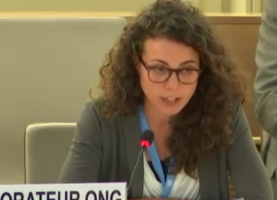
Jul 4, 2018 | Advocacy, Non-legal submissions
The ICJ today urged accountability for and the need to address the root causes of violations of human rights of Rohingya people in Myanmar, at the UN in Geneva.
The statement was made in an interactive dialogue with the UN High Commissioner for Human Rights, on his oral update on the situation, at the Human Rights Council.
The statement read as follows:
“The Government of Myanmar is duty-bound to investigate, prosecute and punish perpetrators of human rights violations. Yet impunity at domestic level necessitates international action: to secure criminal accountability, to provide redress and to deter repetition of crimes under international law.
In May, the government announced a new inquiry into rights violations in Rakhine State. Its mandate, composition and legal framework remain unclear – and there is no indication this will be more effective than previous national inquiries – which have not shed light on the facts, have rarely led to prosecutions and have failed to provide redress.
Justice cannot be further delayed. The International Commission of Jurists supports calls for establishing an international accountability mechanism.
It is also imperative to address the laws and practices discriminating against Rohingyas and other minorities, particularly the 1982 Citizenship Law, as recommended by the government’s Rakhine Advisory Commission.
As a UN Member State, Myanmar must fully cooperate with all UN organs. This includes allowing access to the Special Rapporteur, and permitting the UN Human Rights Office to establish in the country with a full mandate.
Quiet diplomacy and downplaying human rights concerns have failed to improve the situation for Rohingyas. UN organs and envoys present in Myanmar must engage in frank and direct dialogue with the Government about ongoing human rights violations – consistent with the UN Charter and the Human Rights Up Front initiative.
Human rights violations are the root cause of this humanitarian crisis. There can be no voluntary and sustainable return of Rohingya refugees without addressing the sources of human rights violations.
Thank you.”




